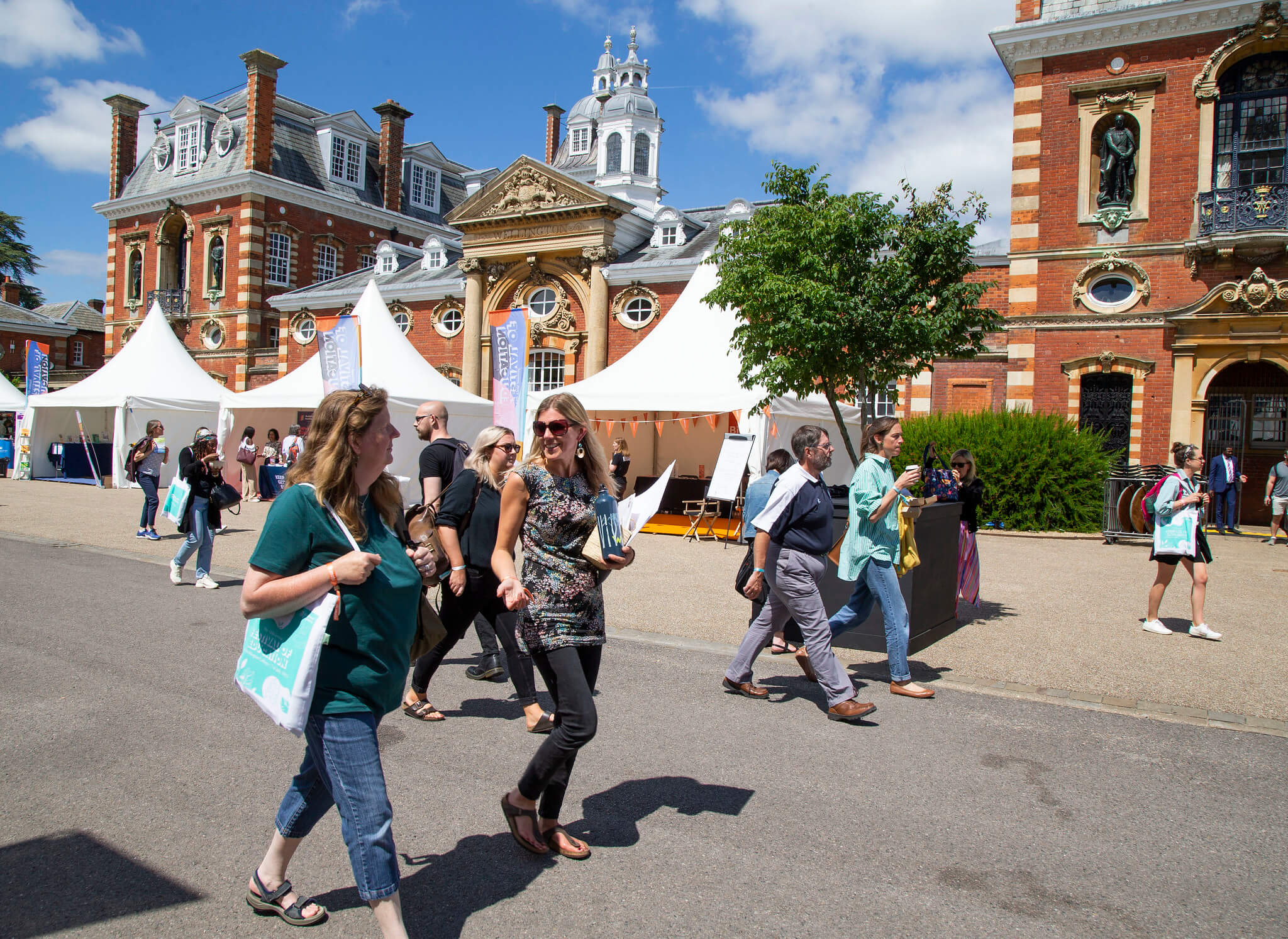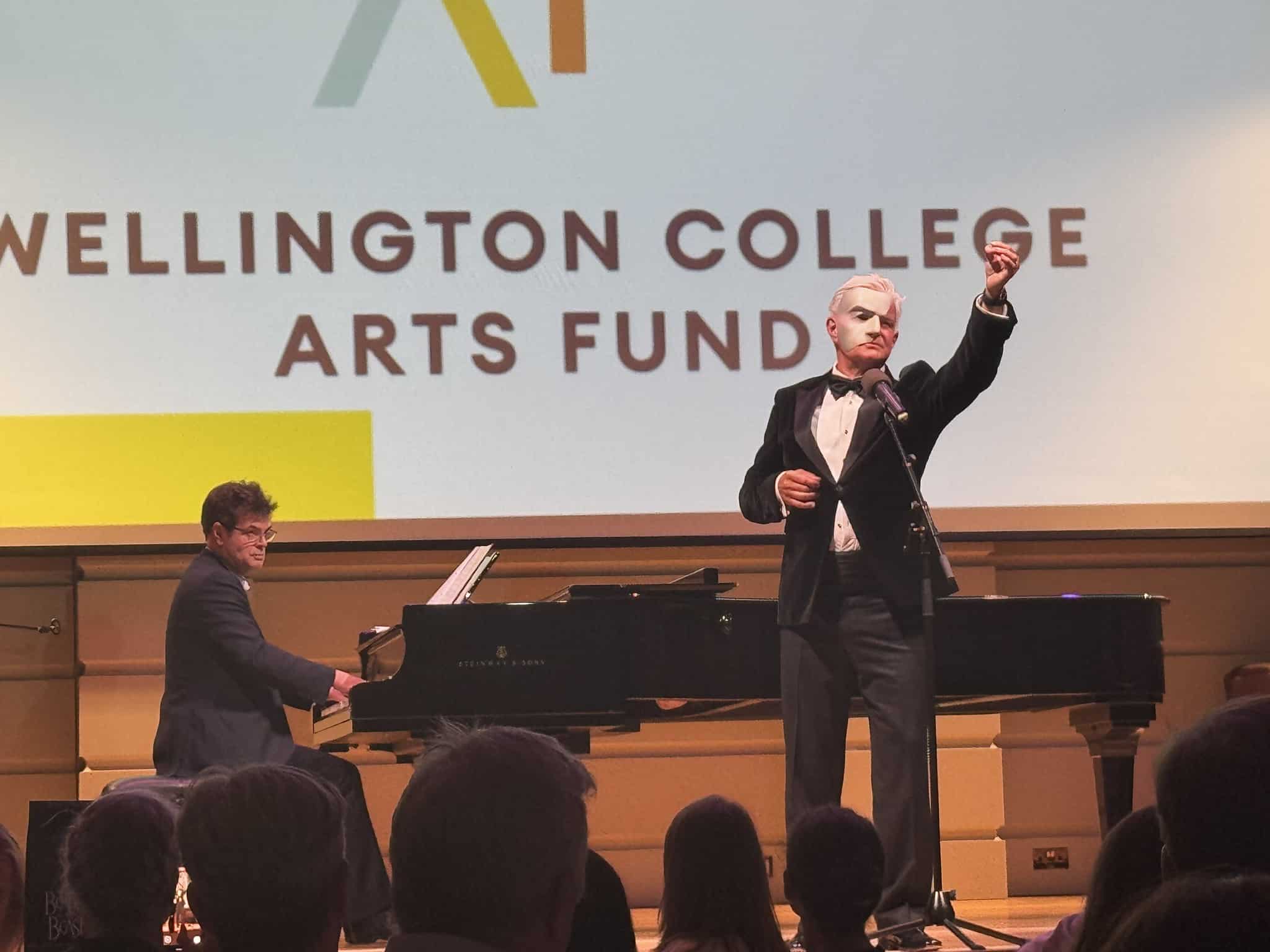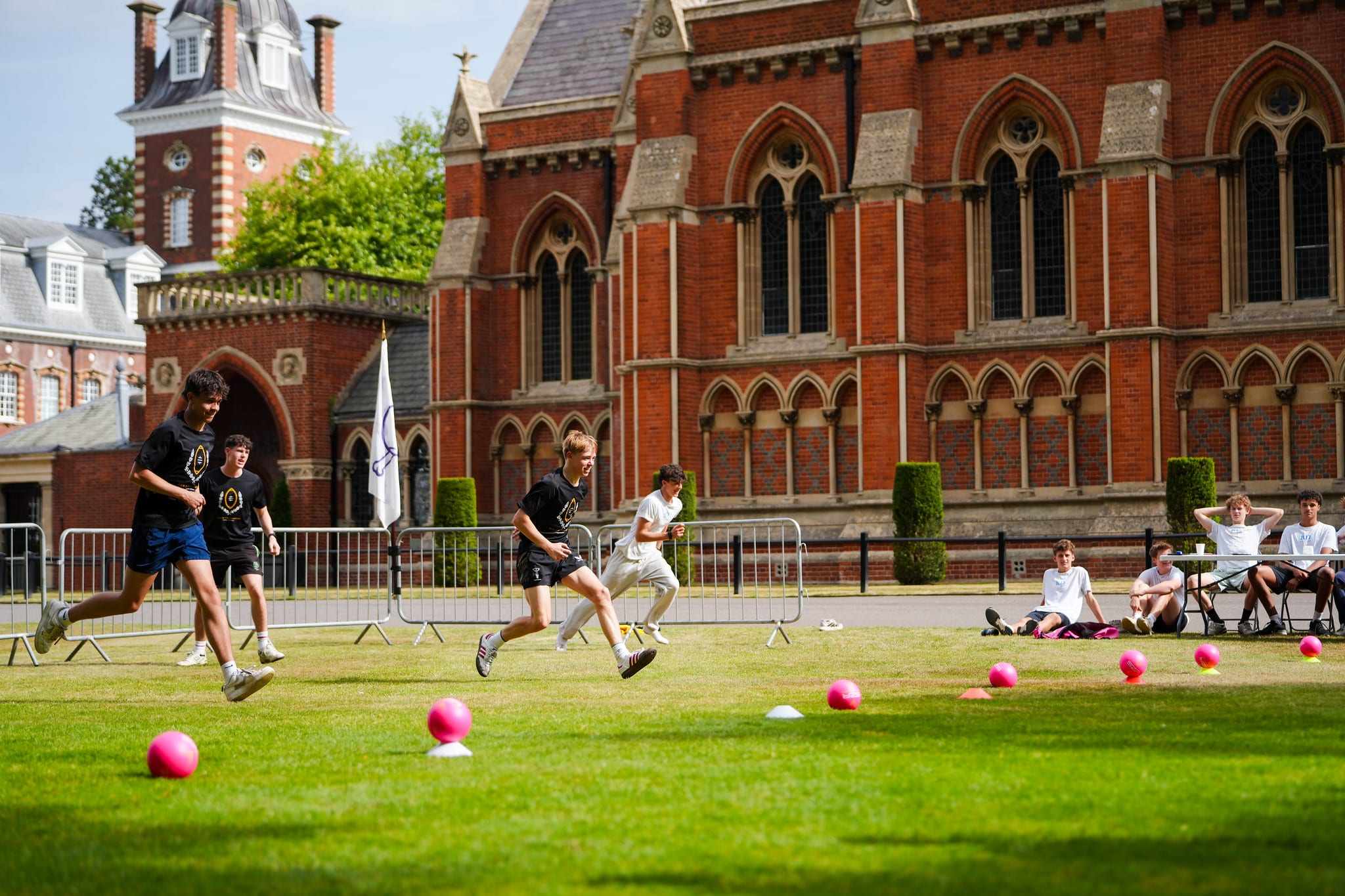
With temperatures reaching 28°C on Friday 8th July, queues for the ice-cream van formed early and the leafy Wellington campus provided much-needed shade for attendees in between sessions.
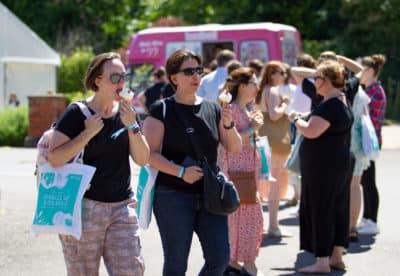
Despite the warm weather, attendees were keen to dive back in to fresh discussions on day 2 of the Festival of Education. The morning got underway with a fascinating talk about ‘Ethical Leadership in the Face of a Flawed System’ led by Caroline Derbyshire, Chair of the Headteachers Roundtable, and Jonny Uttley, CEO of The Education Alliance.
Before her talk, Caroline shared how significant it felt to be at this year’s Festival:
“The Festival presents a really refreshing opportunity, following the pandemic, to talk about the future and recognise that we are at a very particular and poignant moment in education where we will either revert back to a broken past or move forwards to build and shape an exciting future.”Caroline Derbyshire
In the session, Caroline introduced the role of the Headteachers Roundtable which was created to give a voice on how education policy should be shaped through lived experience. The think tank has called for Ofsted reforms and substantially increased funding for schools, post-Covid, to match substantially additional needs.
Jonny Uttley emphasised the importance of looking after the wellbeing and development of staff in order to build positive cultures and achieve high-quality teaching. He said “putting a good teacher in front of a child is the best thing you can do for a child.” He advocated for ethical leadership to be part of performance development for those in senior roles in education.
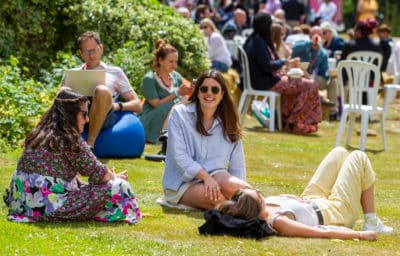
Why Don’t Girls Choose Physics?
With a deliberately provocative title, Friday morning’s debate in the tranquil surroundings of the chapel explored whether there was any truth in the claim that three times as many boys as girls choose physics A-Level because there is a lot of hard maths involved.
The panel looked at the negative language many people are inclined to use around their ability to do maths, and the need for relatable role models when it comes to future career paths. Naveen Rizvi, National Lead of Maths, Astrea Academy Trust, recommended creating positive memories around maths through extracurricular clubs and challenges, instead of just keeping it in the classroom.
The debate concluded with a shared feeling of optimism that a lot of progress had already been made, and would continue, as long as we build confidence and try to instil – in all pupils – a desire to challenge themselves.
Hashi Mohamed’s Powerful Story of Social Mobility
Author, barrister and broadcaster, Hashi Mohamed gave an exceptionally eloquent keynote that challenged the idea that sheer hard work will get you where you want to go.
He shared his own story of arriving in Britain as a refugee at 9 years old without his mother and father and being brought up in poverty and deprivation, only to go on to become a successful barrister.
He acknowledged that he was “hugely lucky” when it came to his own social mobility and, while he agreed that education is critical, he refuted the notion that society’s problems can be solved simply by kids turning up at school, working hard and passing exams.
Hashi reiterated the enormous impact of early years, when the basic structure of a child’s brain is formed and can set the course of someone’s life.
While expressing little faith in government, Hashi emphasised the potential that individual teachers have to provide disadvantaged children with some stability and purpose that might be lacking in the rest of their lives. He shared the story of a teacher who had allowed Hashi and his classmates to choose the colour of their form room and paint it themselves, and the feeling of pride and empowerment that had given him as a young person.
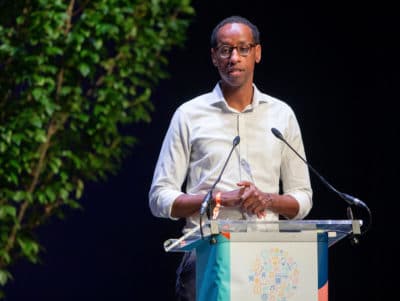
Amanda Spielman’s Ofsted Keynote
One of the most anticipated talks of the Festival, Amanda Spielman, Her Majesty’s Chief Inspector, Ofsted, gave her end-of-year address at lunchtime.
Beginning by summing up the academic year just gone, she praised schools for trying to reassert normality in abnormal circumstances.
“Schools and colleges should look back with pride on a job well done.”Amanda Spielman
She talked at length about the DfE’s new impartiality guidelines for schools saying that it was not only about keeping an individual teacher’s politics outside the classroom, but also about “providing balance” in a polarised society. It didn’t mean “being neutral on every issue” and teachers should make it clear that racism was wrong and illegal, and that climate change was supported by evidence.
She remained unapologetic in her support for exams and good discipline that is “rooted in respect”. On Ofsted’s future she said that “there are also calls for us to shift our emphasis more fundamentally towards mental health and wellbeing.”
She expressed her determination that inspection be as positive and constructive as possible with a transparency that ensures schools know what to expect.
Jassa Ahluwalia’s Closing Keynote
Actor, writer, filmmaker and radio presenter, Jassa Ahluwalia’s closing keynote, ‘Both Not Half: Fostering Belonging in a Divided World’, moved many people in the audience as he summarised his experience of growing up in the Midlands with a English mother and Punjabi father. With the appearance of looking white, his Punjabi heritage was either missed or dismissed.
He told the audience how the label assigned to him of being ‘half-Indian-half-British’ no longer felt acceptable and following the viral success of a series of online videos, the hashtag #bothnothalf was created. This allowed him to include and encompass both sides of his heritage, without question.
Jassa invited attendees to consider the language used when discussing the identities of individuals with multiple ethnicities.
As day 2 drew to a close, the cocktail bar pulled up its serving hatch and people departed Wellington College to enjoy a sunny weekend. Festival Director, Shane Mann, reflected on this year’s event:
Alongside providing attendees with an enormous amount of content, the Festival also provides an opportunity for educators to come together at the end of an academic year.
After the torrid few years we’ve had, due to Covid, it was important that this year felt welcoming and allowed people to connect, catch-up and celebrate. It was wonderful to see so many people bumping into those they’ve connected with on social media, but never physically met.
Over 400 speakers contributed to over 350 sessions across the two days. During the year it is a pleasure to work with our Festival speakers, who are so enthused to share their views and expertise. The line-up this year was terrific, we’ve already had tons of feedback from attendees highlighting those they were moved by, inspired by and challenged by.
“This year a priority was to diversify our content, both in terms of topics and individuals. Our strategic partnerships with the BAMEed Network, LGBTed Network and WomenEd certainly contributed to achieving this. We still have work to do, and that work starts today as we look ahead to the 13th Festival of Education.”Shane Mann
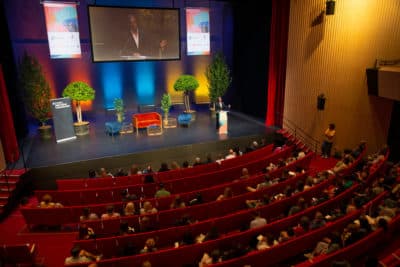
The last word goes to the teachers themselves:
“It’s a place to consider our vision for the future, with space to think, and an opportunity to talk with others.”Lara Stone
“It’s so valuable to have time away from school, time for me to switch off and get some headspace. Festival of Education is a place to meet peers, throw ideas around, challenge my own thinking and reflect on current practice. All within beautiful surroundings.”Clare Searing
Tickets are now on sale for the 13th annual Festival of Education at Wellington College on 6-7th July 2023 with a launch offer of a 35% discount until the end of September.






